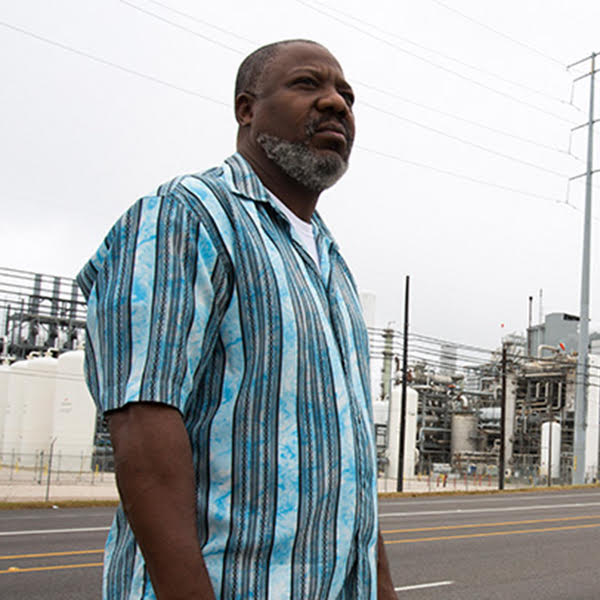When Hilton Kelley took a break from his busy, comfortable life in California to visit Port Arthur, Texas where he’d grown up, he was not pleased with what he found. “The odors from the refineries were pungent. There was a large number of people sick with cancer and respiratory problems.”
Looking into what was going on, he learned that because of the pollution spewed out by hazardous waste and petrochemical facilities, three-quarters of Port Arthur residents have respiratory ailments. Cancer rates are 20 percent higher than the state average.
Port Arthur is dominated by refineries—almost a dozen of them, with dozens more on its outskirts. These facilities spew out millions of pounds of toxins every year.
“People are breathing benzene . . .That’s a known carcinogen,” Kelley reports. “They’re breathing sulfur dioxide, a toxin that messes with your respiratory system. . . . Clean, breathable air is a basic human right the folks out here have been deprived of.”
Kelley’s been an actor, a carpenter, a plumber, an electrician, a welder, an armored-vehicle guard, a story-teller at a zoo, and director of an anti-drug program. Taking in what was happening back home, he decided he now had to be a researcher and environmental activist. Goodbye, California.
He read up on chemistry and environmentalism. He collected data about the emissions, and listened to people’s stories of what was happening to them, putting it all into press releases to the media. To keep the work going, Kelley founded a nonprofit: the Community In-Power & Development Association (CIDA). Via CIDA, he organized protests, despite warnings from the polluting companies and from police to not make trouble.
“I couldn’t sit back and be scared of government and of industry, because the images I keep in my head are the bald-headed women going through chemo and the children hooked up to machines, struggling to breathe.”
He’s testified before the US Senate, and he’s gotten results, including an EPA grant to Port Arthur’s citizens, and companies’ agreements to both lower emissions and also pay settlements for the damage they’ve caused.
He’s gone on to fight a refinery in Louisiana, a plastics plant in Ohio, chemical facilities in Kentucky, plus the pollution of sites in Alabama, Mississippi, and West Virginia.
He’s spoken out at a fossil fuel company’s shareholder meetings in London and The Hague.
But it hasn’t all been big stuff. He’s also been known to cover impoverished families’ power bills out of his own pocket, while he’s managing CIDA’s broad-range, ongoing work.
“Someone has to be at the gate to protect the . . . treasures that support and sustain our lives,” says Kelley. “Without air, we die. Water you can’t drink is like not having water at all. With contaminated land, you can’t grow food. Fighting for our natural resources to be uncontaminated is one of the most important fights there is.”

